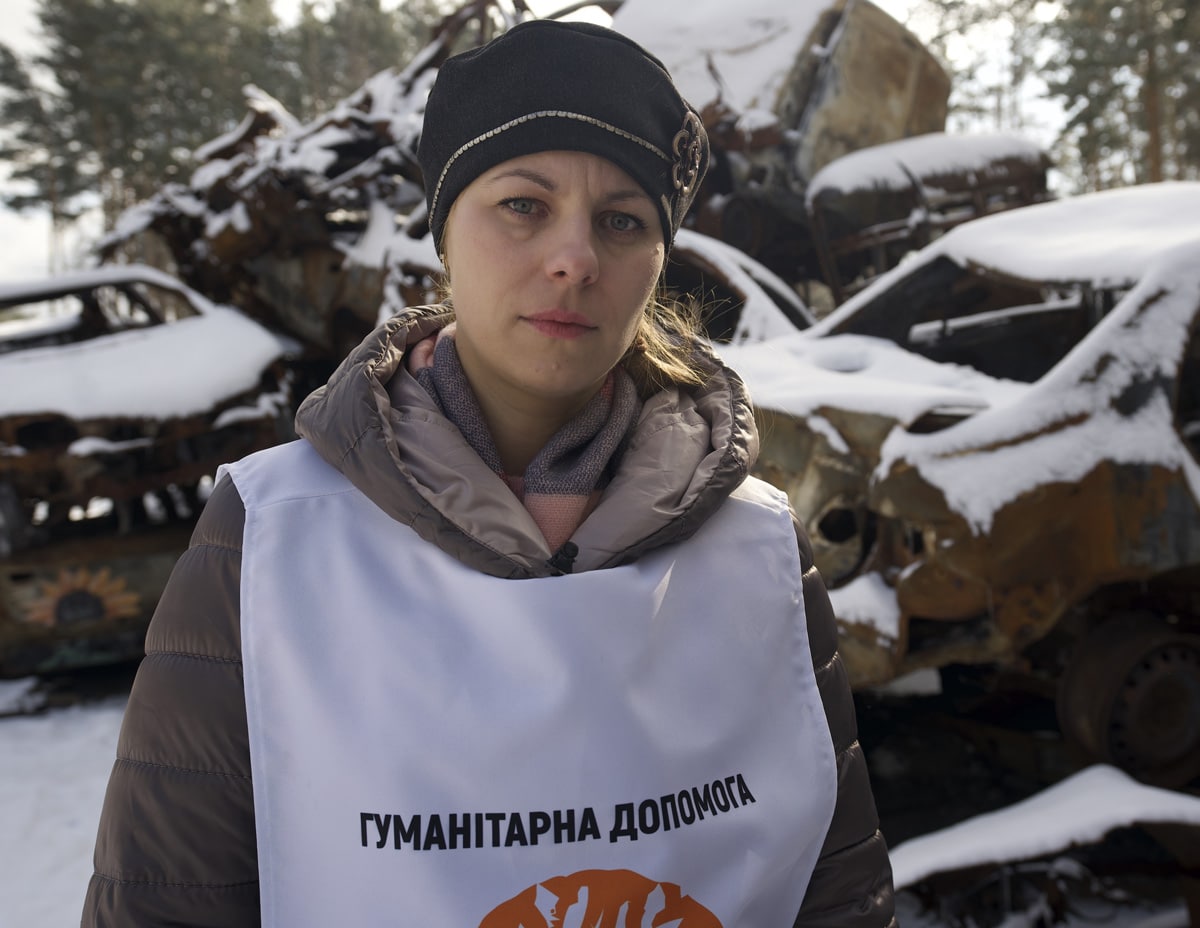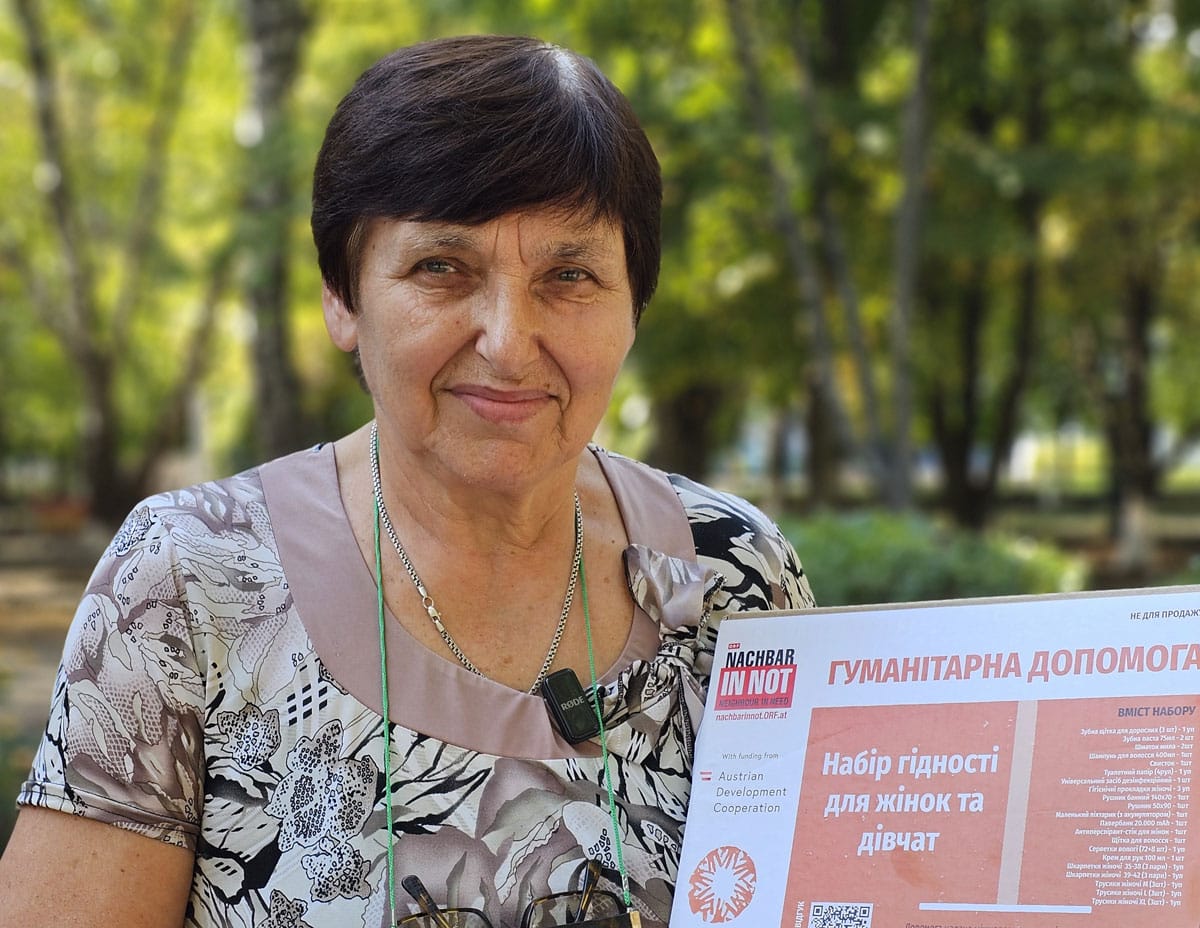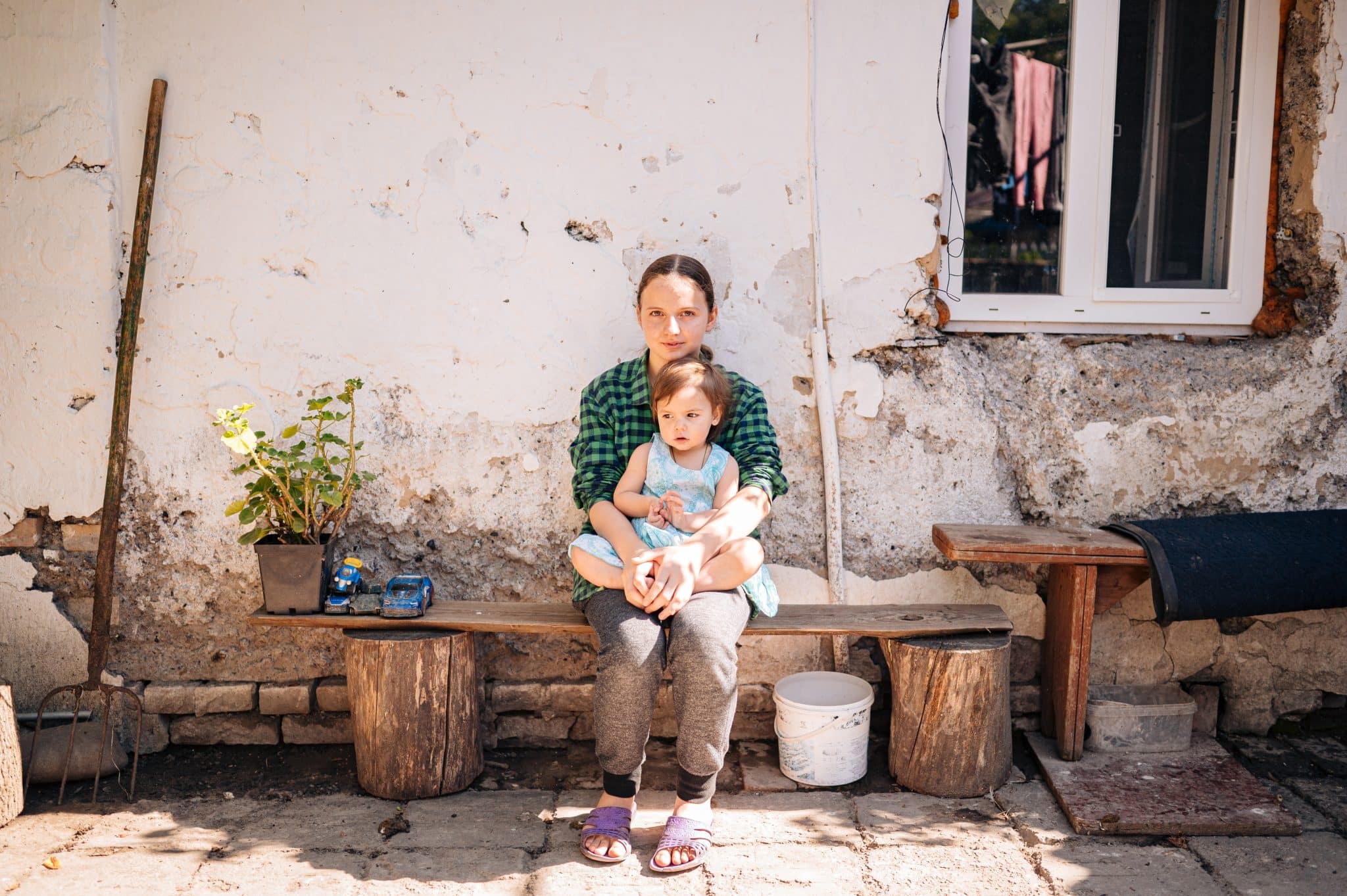Over three years of humanitarian response amid war, the country’s humanitarian situation surpassed even the worst-case predicted scenarios.
About the humanitarian crisis in Ukraine
In the weeks after the conflict began in February 2022, the humanitarian crisis exceeded the worst predictions. Neighboring countries were seeing huge refugee influxes, largely women and children.
In the last three years, the conflict has taken a heavy toll on civilians. Over 13,000 people have lost their lives while over 3.7 million are registered as internally displaced. Another 6.9 million people have had to flee Ukraine as refugees.
Today, 12.7 million people in the country need humanitarian assistance, which represents over a third of the population. Before the 2022 invasion, years of fighting in Donetsk and Luhansk left 2.9 million needing aid and displaced 1.5 million.
What do Ukrainian refugees need most?
The most urgent needs for Ukrainian refugees and displaced people are clean water, hygiene, shelter, and protection from violence, including violence against women and girls. More people need financial help to rent homes, fix property, or pay for medical care. Besides the conflict, displaced families face cold weather, power cuts, and limited healthcare — especially women, the elderly, and people with disabilities.
Donate to our Ukraine Humanitarian Crisis Appeal.
CARE’s response in Ukraine
CARE’s responses are regional and leverage partnerships in affected countries to deliver emergency assistance. In Poland, CARE is working with Polish Humanitarian Action (PAH), Polish Center for International Aid (PCPM), Ukrainian House, and others. Our priority is to meet the immediate needs of affected families through the distribution of critical food and water supplies, as well as hygiene kits, cash assistance and psychosocial support.
In Romania, CARE is working with its long-term partner SERA, the Federation of Child Protection NGOs (FONPC), and Red Cross to deliver assistance to those fleeing into Romania from Ukraine.
In Slovenia, CARE is working with Red Cross.
In Ukraine, CARE supports several partner organizations. These include CFSSS (Charity Foundation Stabilization Support Services), IRF (International Renaissance Foundation), and Ukraine House, as well as Ukrainian women’s rights organizations to implement programs that support women and other marginalized groups.
CARE is also working through People in Need (PIN) in Ukraine to provide food, water, hygiene items, key non-food items such as mattresses, sleeping bags and blankets, psychosocial support and protection, and sanitation facilities at the overcrowded border crossing areas. PIN has been providing trucks and trains of basic relief items into Lviv and Kyiv in western Ukraine as well as psychosocial assistance including a 24/7 assistance hotline to trained professionals.
CARE has worked in Europe since the aftermath of World War II, when we delivered assistance in the form of CARE Packages to countries ravaged by conflict. We have active programs in multiple countries in Eastern Europe.


Meet Lydia
“Oh, a power bank!” this is what Lydia, 72, exclaims when she opens a dignity and hygiene kit from CARE partner.
Lydia lives alone in an apartment in North-Eastern Ukraine. The city is often hit by shelling, power outages are frequent. She needs the power bank to charge a small lamp that illuminates her room when the power goes out again.
Lydia is an independent woman who does everything herself. She repairs broken items in her apartment by herself. Fixing a cabinet is no problem for her. When a staff member of a CARE partner organisation wants to help her, she refuses and gets up to fix it herself.
However, Lydia does accept help when it comes to psychological support. She takes advantage of the counseling offered by a CARE partner. She often talks there about her son, who died of cancer two years ago.
Before the sessions with psychological help, her life was dominated by fear and anger. “Now I can cope with it. Now I am calm,” she says. “I was nervous before. Now I always go to every session. Without them, I could not cope. It is a relief and cures my soul. All the pain you feel, you need to release it. You need to talk about it. There are air raid sirens all the time. When I heard them, I reacted to them with fear. Now it’s just a siren. A sound and nothing to be afraid of.”
The sessions help her cope with that and the trauma of the war. She no longer fears the future.
In the areas near the front line, many elderly people like Lydia live. They often lack products such as hair shampoo, soap, or absorbent pads in case of incontinence. CARE has already supported 5,000 people in the south and east of Ukraine with hygiene packages. Lydia also receives a CARE package with hygiene items, which lasts for one month after which she will receive another. Without this help, it would be unaffordable for her.
When the lights go out, Lydia’s new power bank keeps her small lamp burning. She prays the names she carries, tends the icons on her altar, she counts the drones and visits the counselling sessions that helped her move from fear and anger to calm. With the new hygiene kit that is enough for one month and a pension that can’t cover a new refrigerator, she carries on quietly—repairing what she can, remembering her son at the beach, and choosing to keep living despite the war.
Donate now
Support our ongoing work to create a more equal world.
Your donation can help end extreme poverty and give people the means to build a better future for themselves in countries like Ukraine.
For those living in extreme poverty, your support brings education and training, healthcare and clean water, nutritious food, and new ways to earn an income. And in times of crisis, you help us deliver emergency relief. Please donate today.

